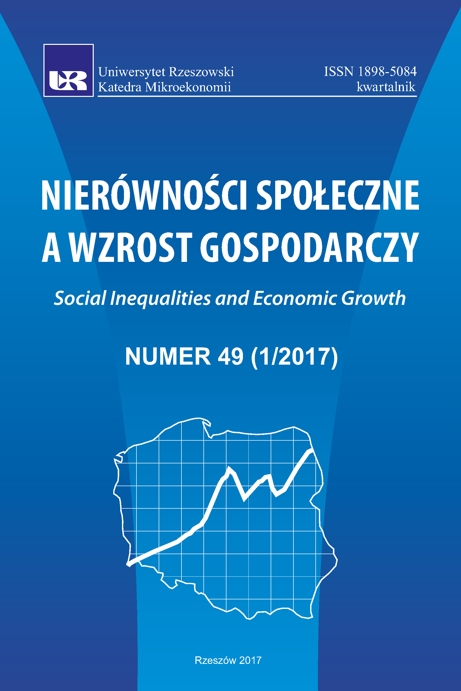Kontrowersje wokół skutecznych metod zapewnienia dyscypliny fiskalnej w krajach Unii Europejskiej
The controversy over the effective methods of ensuring fiscal discipline in the European Union
Author(s): Małgorzata Gajda-KantorowskaSubject(s): Economy, National Economy, Rural and urban sociology, Public Finances, Socio-Economic Research
Published by: Wydawnictwo Uniwersytetu Rzeszowskiego
Keywords: the effectiveness of fiscal rules; international debt problems
Summary/Abstract: Economic and financial crisis has led to the disclosure of many imperfections of the systemof economic management in the European Union, and established fiscal rules did not preventthe debt crisis in EMU. Not only there was a rapid deterioration in fiscal indicators in all countriesof this group, the course of the crisis also proved that the excessive levels of debt can bea serious threat to the -fiscal sustainability than high budget deficit indicators. The aim of thispaper is to present measures used after the crisis to ensure the disturbed balance budget at theEU level, to assess their effectiveness and discussions on the possibility of ensuring fiscal disciplineeffectively especially in the euro area composed of countries with very diverse cultureof fiscal sustainability.The analysis shows that the reformed fiscal rules still do not meet many of the conditions ofthe so-called. good and effective fiscal rule. On the one hand, it increased flexibility of regulations,which allows to take into account the diversity of the economic situation in individual memberstates. On the other hand, there has been a significant complexity of the rules, making it difficult toverify the degree of respect by member states. Furthermore the politicization of decision-makingand the lack of effective instruments to ensure the necessary adjustment of fiscal policies in theMember States, they mean that solutions are not however, sufficient to effectively ensure fiscalstability in the long runIn view of the extreme controversy about the direction of reform and conditions to avoid difficultdecisions by the EU institutions, finally, at a relatively high preferences of sovereignty in thearea of fiscal policy, the most important factor in maintaining fiscal discipline in the long run is thepresence of the culture of fiscal sustainability in individual countries.
Journal: Nierówności Społeczne a Wzrost Gospodarczy
- Issue Year: 2017
- Issue No: 49
- Page Range: 84-95
- Page Count: 12
- Language: Polish

